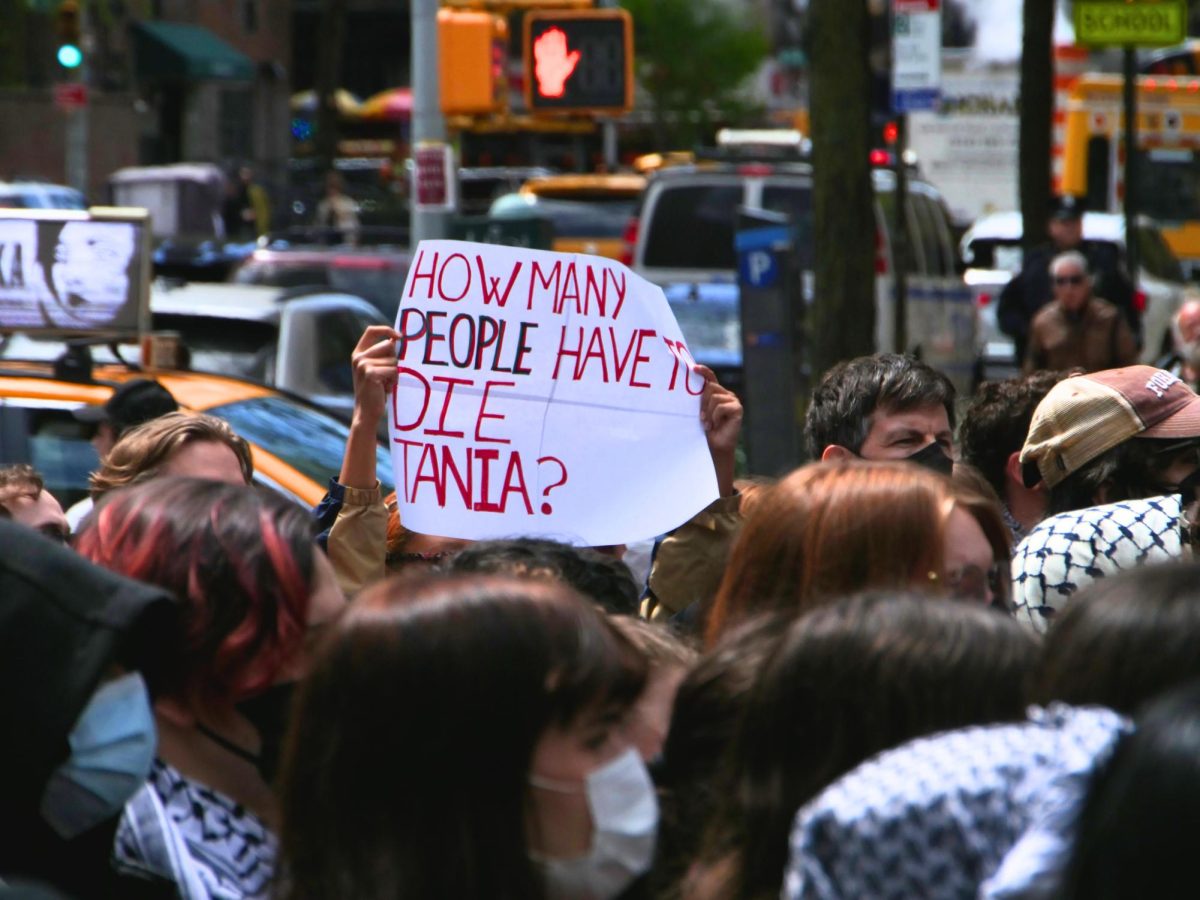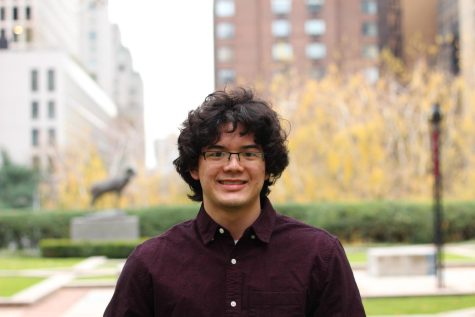We the Opinions editors of The Observer stand with Fordham University’s chapter of Students for Justice in Palestine (SJP) and the faculty and student protestors at Columbia University, New York University (NYU), The City College of New York and The New School. We universally condemn the violent administrative and police response to student protests. In support of Fordham’s SJP and in solidarity with fellow New York students, we the Opinions desk urge Fordham University to call for an immediate ceasefire, divest from Israeli funding and make such financial actions transparent and reinstate SJP.
In the Gaza Strip, Palestinians have been the primary victims of Israel’s attacks. Euromed, a non-profit human rights organization, outlined that over a span of 200 days, 42,510 Palestinians have been killed by the Israeli army — over half were civilians, including 10,091 women and 15,780 children. The industrial and geographical landscape of the Gaza Strip has been left decimated by warfare; “genocide” is the only word to describe it.
Any violence witnessed at pro-Palestine movements has only been exacerbated by police presence — on Emory’s campus, demonstrators could be seen screaming as police officers wrestled them to the ground, hand-cuffing their wrists with zip ties.
Across the U.S., student-organized protests have surged, calling for their respective universities to sever ties with companies and entities supporting Israel’s military efforts. The vast majority of these protests have been peaceful; at Fordham University, for example, students attending the Disclose and Divest Rally on April 25 were told not to interact with police or block the Fordham entrance — everyone complied, and the protest ran uninterrupted despite the disproportionate police presence. However, not all protests have been met with the same authoritative restraint.
At Emory University’s campus in Atlanta, Georgia, protestors accused police of forcibly dispersing crowds with pepper spray and tear gas. Eventually, a university spokesperson, Laura Diamond, described the peaceful protest to The New York Times as “activists attempting to disrupt our university before students finish classes and prepare for finals.” Diamond added, “the university does not tolerate vandalism or other criminal activity on our campus.”
Any violence witnessed at pro-Palestine movements has only been exacerbated by police presence — on Emory’s campus, demonstrators could be seen screaming as police officers wrestled them to the ground, hand-cuffing their wrists with zip ties. An Emory professor, Dr. Caroline Fohlin, was also struck down by police despite informing them of her position.
As faculty salaries fall and tuitions rise, universities across America have made it clear that they prioritize trustee profits over student and faculty welfare.
Many have commented on the irony of suppressing free speech within institutions that historically uplift critical thinking, which prompted subsequent disputes about what constitutes “free speech.” However, the central point of this wave of protests is not the boundaries of our First Amendment. Rather, students have made the facile moral decision to condemn a genocide and are being brutally repressed by their own educational institutions, their alleged caretakers.
Universities should not only allow students to protest, but extricate themselves from the most contemptible genocidal avarice and restore a sense of co-governance with students. As faculty salaries fall and tuitions rise, universities across America have made it clear that they prioritize trustee profits over student and faculty welfare.
At Columbia University, New England Patriots owner Robert Kraft announced he “no longer feels comfortable supporting the university” after student activists demonstrated support for Palestine through encampments on the lawn. Kraft, as one of the university’s most famous and wealthiest alumnus, threatened to pull his endorsements to Columbia unless “corrective action” was taken to suppress student voices.
The outcome? On March 24, Speaker Mike Johnson announced that he will call upon Joe Biden to deploy the National Guard at Columbia University. “My message to the students inside the encampment is go back to class and stop the nonsense,” Johnson said. “Stop wasting your parents’ money.” It’s evident that justice is being traded in for “beneficiary donations.”
Readers would also do well to remember it was the administrations of Columbia University, NYU and the New School that demanded their own students be arrested. Such political suppression is the manifest paranoia of a dying colonial ideology — one that has rewritten a history of violence.
As the situation spirals across the city, we remember Fordham’s previous ardor in silencing Palestinian voices, contributing to a bottom-rung free speech ranking. In a legal battle dating to 2014, Fordham won a suit to silence the university’s division of SJP. Despite numerous attempts to censor the club, including Meta banning @fordham.sjp on April 25, the club has remained far from silent. On the same day of the accounts expulsion, SJP orchestrated a rally outside Fordham Lincoln Center (FLC), with early reports suggesting a turnout of hundreds.
During the rally, student members passed out pamphlets covering the university’s ties to entities like JP Morgan Chase & Co., a top investor in Israeli weapons manufacturer Elbit Systems, which “shamelessly boasts ties to the Israeli apartheid state.”
The only way for universities like Fordham to salvage their credibility is full acknowledgment of student demands: divestment, disclosure and ceasefire calls. Additionally, they must rectify the long-term effects of anti-Palestinian arrests, suspensions and expulsions. Ultimately, the exact terms of universities’ return to acceptability must be dictated by the very student organizations that they have been marginalizing. They must hear the complaints of students and stop supporting genocide. In any scenario, it will take time and significant effort to heal the wounds actively being inflicted upon New York’s university life and — more importantly — on the Palestinian people.


